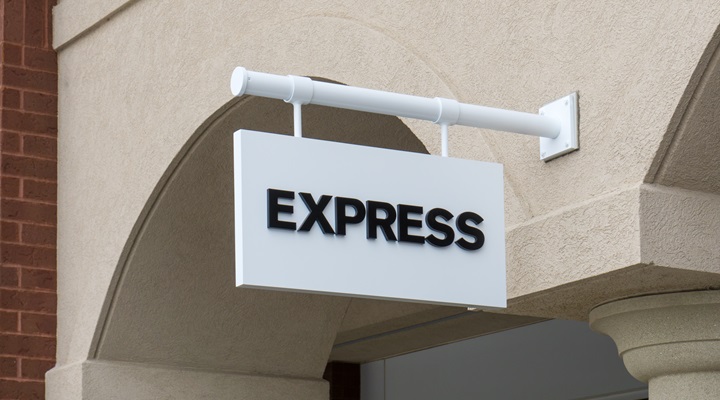The industry has been buzzing since Express filed for Chapter 11 bankruptcy and announced the closure of at least 100 store locations. In addition to the retailer’s namesake chain, the bankruptcy applies to other brands in its portfolio: Bonobos and UpWest Express. In addition to closing out underperforming stores, the bankruptcy will allow Express to pursue a formal sale to WHP Global, a brand management company that already has a 7.4 per cent share in Express and has sent the compa
mpany a non-binding letter of intent to purchase the majority of the business.
Express CEO Stewart Glendinning said the business is taking an important step that will strengthen its financial position and enable Express to continue advancing its business initiatives.
“WHP has been a strong partner to the Company since 2023, and the proposed transaction will provide us additional financial resources, better position the business for profitable growth and maximize value for our stakeholders,” Glendinning said in a statement.
The retailer has received a commitment for $35 million in new financing from certain of its existing lenders, subject to court approval and $49 million in cash from the Internal Revenue Service related to the Coronavirus Aid, Relief, and Economic Security Act (CARES) Act to continue remaining online and in-store operations.
What happened with Express?
Managing director and retail analyst at GlobalData Neil Saunders told Inside Retail that Express has struggled to gain traction with consumers and “it has been obvious for quite some time that bankruptcy was the inevitable destination for Express”.
When Express originally launched as a women’s fashion retailer in 1980, before eventually branching out to menswear in 1986, a large part of its appeal derived from its relatively affordable offering of trendy pieces to wear in the workplace.
By 2010, Express had gone public as the sixth-largest specialty retail apparel brand in the US and by 2015 its quarterly net sales hit a high of $765.6 million.
However, more recently, with inflation spiking production costs and declining discretionary consumer spending, Express hasn’t been able to keep pace with the price-competitiveness of fast-fashion rivals such as H&M or Old Navy.
Another blow to the business has been the impact of the Covid-19 pandemic on how consumers dress for work.
“The woes at Express are not all of its own making. The formal and smart casual market for both men and women has softened over recent years because of a rise from working from home and the casualization of fashion,” Saunders noted.
During the pandemic, “officewear” shifted from suits and ties to yoga pants and athletic tees. Athleisure brands, including Athleta and Lululemon, the latter of which saw a 157 per cent spike in online sales year-over-year from 2019 to 2020, greatly benefited from this wardrobe shift.
While some people have maintained a remote or largely work-from-home lifestyle and continued to dress in athleisure, other workers have sought out more custom-suiting options in a desire to dress up again. However, Express hasn’t been able to capture this group either.
“The overall assortment is poor in that it is overpriced, lacks differentiation, and comes across as very bland. As a result, the Express brand itself has become less relevant to shoppers,” Saunders said.
“In many ways, Express is the archetypal middle-market mass retailer that consumers are increasingly willing to either cut out of the portfolio of stores they visit or buy less from, as they look to save money.”
Can Express make a comeback?
While Express has attempted to cut costs and restructure, Saunders noted that the brand hasn’t been able to solve the problem of a lack of relevancy to consumers.
“All of this has been exacerbated by some very poor decisions, including to appoint someone from the meat industry as CEO of a fashion retailer and the decision to acquire Bonobos with WHP at a time when the core business was weak, and cash was tight,” he said, referring to Glendinning’s previous role as group president for food and beverage manufacturer Tyson Foods.
However, he believes that the bankruptcy filing is a step in the right direction for the apparel retailer.
“Bankruptcy will allow Express to reset the business, including shutting down a number of badly performing stores. The business may also find a quick resolution to its issues if an offer from WHP Global, which already has an interest in Express, to fully acquire the brand and stores is accepted. This would not solve all of the immediate issues, but it would at least put Express on a stable footing.”

